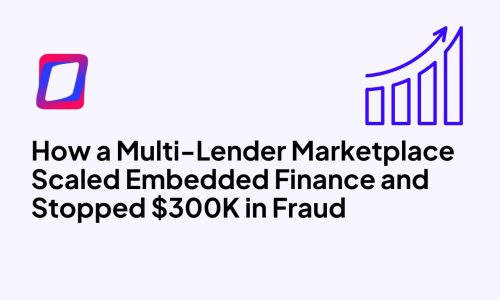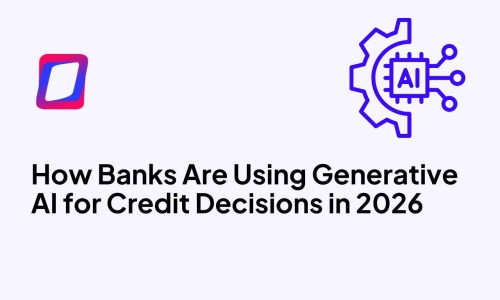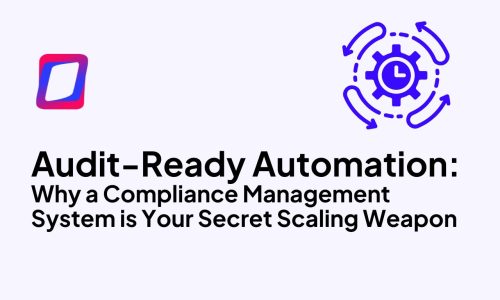Exploring GDS Link’s Future with CEO Lisa Bonalle: Vision, Partnerships, and Industry Transformation
Lisa Bonalle, recently appointed CEO of GDS Link, is a key figure within financial services and despite taking the helm just a few months ago, her fresh perspective is already making waves. In a recent interview with GDS Link’s EVP of Partnerships and the host of The Lending Link, she delved into the ways digital innovation is reshaping lending practices. Bonalle emphasized the critical need for agility and a customer-centric approach, underscoring her commitment to guiding the industry toward a more sophisticated and responsive future. Here’s what you can expect to learn when you tune into the episode:
Lisa Bonalle’s Journey in the Financial Industry
With a career spanning over thirty years, Lisa has been a pivotal figure in financial technology. Her roles at Verisk Financial Group and Argus Information paved her path to GDS Link, which is characterized by a relentless pursuit of innovation and growth.
GDS Link’s Future Vision
Under Lisa’s leadership, GDS Link prioritizes digital decisioning and customer-focused solutions. The Modellica Platform, a testament to this vision, offers advanced analytics and tools for dynamic decision-making in financial institutions.
Emerging Trends and Challenges in the Industry
Lisa notes a significant shift towards digital transformation in finance. She stresses the need for seamless customer experiences and the transition from traditional to digital banking models. Additionally, Lisa delves into the challenges of fraud prevention and data protection, which are crucial in today’s digital environment.
The Power of Strategic Partnerships
Strategic partnerships are integral to GDS Link’s approach under Lisa’s guidance. These collaborations drive innovation and provide holistic solutions to financial institutions and their clients.
A Roadmap for the Future
Lisa Bonalle offers a clear vision for the future of financial services, highlighting digital transformation, customer focus, and strategic partnerships. Her leadership at GDS Link is not merely about adapting to changes but actively shaping the finance industry’s future. Listen to the Full Episode Here:
About Lisa Bonalle:
Lisa Bonalle brings over 30 years of dynamic leadership and innovation to her role as CEO of GDS Link. With extensive experience spanning financial services, loyalty, fintech, and martech industries, Lisa’s career is marked by a commitment to excellence and strategic vision.
Before joining GDS Link, Lisa served as Group CEO and President of Verisk’s Financial and Marketing Solutions sector, where she oversaw multiple successful acquisitions and significant business growth. Her visionary leadership at the intersection of financial services, loyalty, and commerce has left an indelible mark on the industry.
Lisa is known for her collaborative approach, expert direction, and her ability to drive innovation. She is a fierce advocate for diversity, equity, and inclusion and is deeply committed to philanthropy and volunteerism. Lisa holds an MBA with highest honors from New York University and a BA, summa cum laude, from Providence College.
As CEO of GDS Link, Lisa is dedicated to building upon the company’s legacy of delivering innovative real-time decisioning solutions and driving its continued success in the credit risk solutions and data analytics sector.
Be sure to follow Lisa and our host Rich on LinkedIn, and for the latest GDS Link updates and news, follow us on Twitter and LinkedIn. You can subscribe to the Lending Link on Apple Podcasts, Spotify, Google Podcast, YouTube, or wherever you prefer to listen to your podcasts!
About GDS Link:
GDS Link is a global leader in credit risk management, providing tailored software solutions, analytical and consulting services. Our customer-centric risk management and process automation platforms are designed for the modern lender in their pursuit to capitalize on the entire credit lifecycle.
By providing a personal, consultative approach and leveraging our own industry-leading knowledge and expertise, GDS Link’s solutions and services deliver exceptional value and proven results to thousands of clients around the world.
About The Lending Link Podcast:
The Lending Link Powered by GDS Link is a podcast hosted by Rich Alterman and designed for the modern-day lender. Each episode deeply delves into innovation within the financial services industry and transformation efforts, including AI / ML integration, Modeling, Risk Management Tactics, and redefining Customer Experiences.
GDS Link launched The Lending Link to explore unique strategies for the modern-day lender, dive into the innovative advancements GDS Link and our partners are currently developing and delivering, and gain insights from captivating guests within the FinTech, banking, and credit union worlds.
We have a wide range of guests from various lending institutions and diverse organizations who talk about strategies, technology, and everything in between.
Recent articles

How a Multi-Lender Marketplace Scaled Embedded Finance and Stopped $300K in Fraud
Read article
Generative AI Decision Engines Transform Bank Credit Software in 2026
Read article





